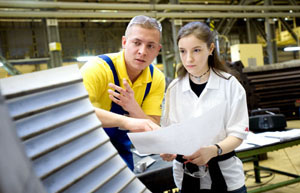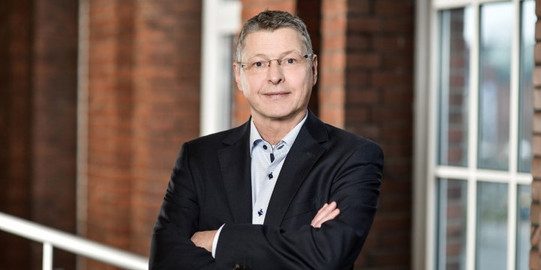What qualifications are required in the dynamic change of work, how are they taught?
Technological and organizational change require constant further development of employees' skills. In addition to technical qualifications, interaction and self-management skills are increasingly required. Work design that promotes learning and innovative forms of learning are gaining in importance.
Our research is concerned with the contents, prerequisites and possibilities of participation-based learning arrangements.

Current Projects
- BEYOND 4.0: Inclusive Futures for Europe BEYOND the impacts of Industrie 4.0 and Digital Disruption
With a multidisciplinary research approach, the BEYOND 4.0 project contributes to an inclusive European future by exploring the impact of new technologies on the future of jobs, business models and welfare.
Further information about the BEYOND 4.0 project
- Blueprint “New Skills Agenda Steel”: Industry-driven sustainable European Steel Skills Agenda and Strategy (ESSA)
ESSA is realizing a sector-oriented, sustainable and coordinated blueprint for a European agenda for new skills in the steel industry. A blueprint for human capital development through a Sector Skills Alliance (SSA) is being implemented through a social innovation process involving a wide range of key steel industry stakeholders: companies, education and training providers, research institutions, European and national social partners, steel associations and trade unions, and industry experts.
Further information about the ESSA project
- Skills Alliance for Industrial Symbiosis (SAIS) – A Cross-sectoral Blueprint for a Sustainable Process Industry (SPIRE)
SPIRE-SAIS aims to develop a blueprint of a European agenda and strategy for new competencies in energy-intensive industry, which will help to meet new competence needs on cross-sectoral, industrial symbiosis (IS) and energy efficiency on a continuous and short-term basis.
Further information about the SPIRE-SAIS project




![[Translate to English:] [Translate to English:]](/storages/zentraler_bilderpool/_processed_/a/f/csm_Kontakt_b86e8d8ecc.png)
![[Translate to English:] [Translate to English:]](/storages/sfs-sowi/_processed_/6/c/csm_Glasfront_sfs_Header_eae6d325d3.jpg)
